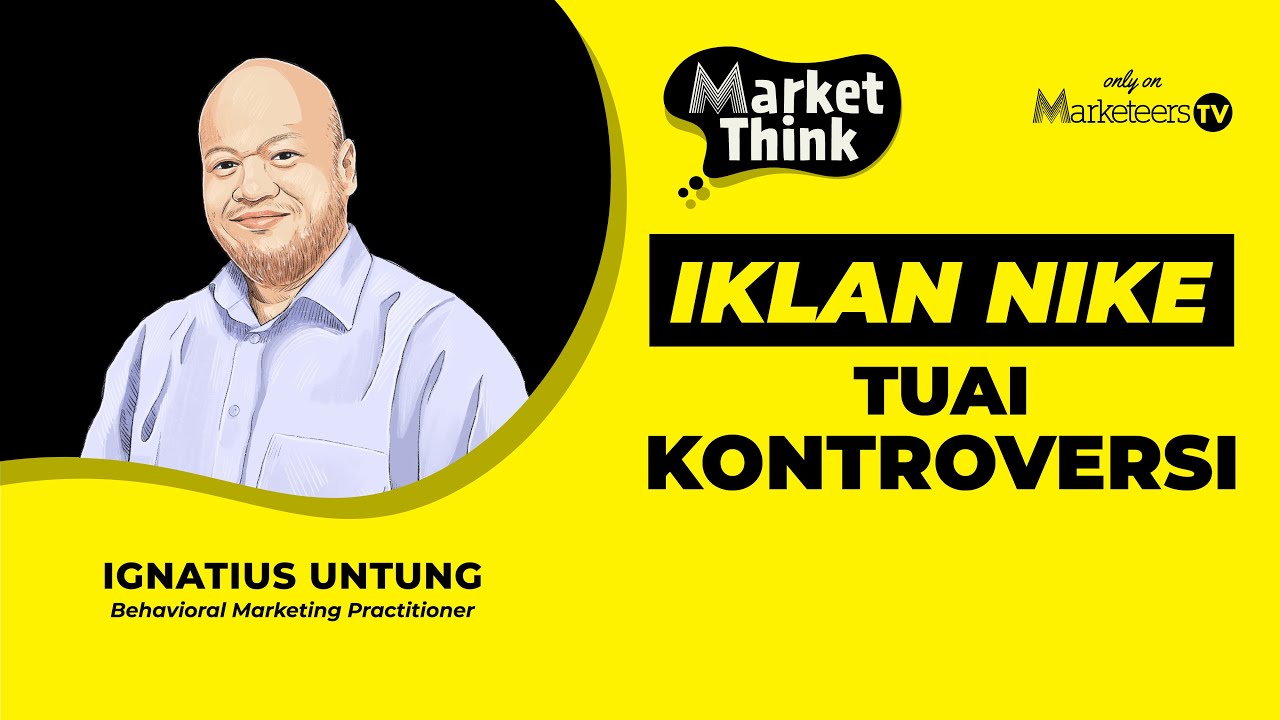What Steve Jobs learnt from Nike's marketing campaign that beat it's rival Adidas
Summary
TLDRThis episode explores Nike's ingenious marketing strategy during the 2012 London Olympics, where despite not being the title sponsor, they outperformed Adidas in public perception. By leveraging loopholes, hiring athletes as ambassadors, and creating emotionally resonant ads with average teenagers, Nike demonstrated that extraordinary efforts can lead to legendary success, even without the traditional advantages.
Takeaways
- 😎 Steve Jobs was inspired by Nike's marketing strategy for Apple's 'Think Different' campaign.
- 🏅 In 2012, Adidas became the title sponsor of the Summer Olympics in London by paying $150 million, aiming to surpass Nike.
- 🚫 The Olympics committee imposed strict rules to prevent non-sponsor brands from associating with the event.
- 👟 Nike cleverly exploited loopholes by sponsoring athletes, using the color Volt for high visibility, and filming ads in various 'Londons' worldwide.
- 🌟 Nike's strategy of using average teenagers in their 'Find Your Greatness' campaign resonated deeply, inspiring viewers to identify with the brand.
- 📈 Despite not being the official sponsor, Nike's social media following grew significantly more than Adidas during the Olympics.
- 🏆 A survey revealed that more people believed Nike was the title sponsor of the Olympics, showcasing the effectiveness of Nike's marketing.
- 💡 The case study illustrates that extraordinary efforts can lead to legendary results, as demonstrated by Nike's strategic marketing.
- 🌈 Nike's campaign focused on evoking emotions and creating an involuntary, inspiring experience for the audience.
- 🚀 The success of Nike's campaign teaches that greatness is a choice and can be achieved by anyone who strives to find it.
Q & A
What was the situation at Apple when Steve Jobs returned in 1996?
-When Steve Jobs returned to Apple in 1996, the company was struggling with losses due to 11 consecutive years of failure and was on the brink of bankruptcy. The company's reputation had severely degraded, and people had lost faith in the brand.
What was the 'Think Different' campaign, and why was it significant?
-The 'Think Different' campaign was a legendary marketing initiative launched by Apple under Steve Jobs' leadership. It aimed to restore the company's reputation and consumer trust, ultimately laying the groundwork for Apple's resurgence and eventual status as a trillion-dollar company.
How did Steve Jobs find inspiration for the 'Think Different' campaign?
-Steve Jobs found inspiration for the 'Think Different' campaign from the sports brand Nike, as he mentioned in an archived video while addressing his executives.
Why was the 2012 Summer Olympics a significant event for sports brands?
-The 2012 Summer Olympics in London was a significant event for sports brands because it offered an opportunity to become the title sponsor, which could lead to substantial profits and brand exposure.
What was the cost of the title sponsorship for the 2012 Olympics, and who secured it?
-Adidas secured the title sponsorship for the 2012 Olympics at a cost of $150 million.
Why is title sponsorship of a major sports event considered a valuable investment?
-Title sponsorship of a major sports event is considered a valuable investment because it can lead to significant brand exposure and growth, as illustrated by the example of Vivo's title sponsorship of the IPL, which resulted in a more than 100% increase in shipments.
What strategy did Nike employ to gain publicity during the 2012 Olympics without being the title sponsor?
-Nike employed a strategy that involved leveraging loopholes in the sponsorship rules, hiring Olympians as brand ambassadors, and creating a compelling advertising campaign that resonated with the public, even without using the banned keywords or being the official sponsor.
How did Nike's strategy during the 2012 Olympics differ from Adidas' approach?
-While Adidas focused on using Olympians in their commercials as part of their title sponsorship, Nike chose to hire average teenagers as brand ambassadors and created an inspiring campaign that connected with the public on an emotional level.
What was the outcome of Nike's strategy during the 2012 Olympics in terms of social media engagement?
-Nike's strategy resulted in a higher number of tweets associating the brand with the Olympics, a greater increase in social media followers, and a higher percentage of people mistakenly identifying Nike as the title sponsor, despite not being the official sponsor.
What lessons can be learned from Nike's 2012 Olympics strategy?
-Three key lessons include the importance of going the extra mile to stand out, the power of evoking emotions in advertising to create memorable experiences, and the belief that greatness is attainable by everyone, not just a select few.
How did Nike's 'Find Your Greatness' campaign leverage emotions to communicate its message?
-The 'Find Your Greatness' campaign leveraged the emotion of inspiration, aiming to depict the spirit of striving for self-improvement in every individual, thus creating a relatable and inspiring narrative that resonated with the audience.
Outlines

此内容仅限付费用户访问。 请升级后访问。
立即升级Mindmap

此内容仅限付费用户访问。 请升级后访问。
立即升级Keywords

此内容仅限付费用户访问。 请升级后访问。
立即升级Highlights

此内容仅限付费用户访问。 请升级后访问。
立即升级Transcripts

此内容仅限付费用户访问。 请升级后访问。
立即升级浏览更多相关视频

Iklan Nike Berhasil Menarik Perhatian di Olimpiade Paris 2024 - Market Think 122

Why Adidas Lost Germany

How One Olympian Turned Devastation into Inspiration | Jordyn Wieber | TEDxUCLA

Her swimming strategy should be imposible!

What the Olympics did to East London (Documentary)

Tontowi-Liliyana Raih Emas, Indonesia Raya Berkumandang di Olimpiade Rio
5.0 / 5 (0 votes)
